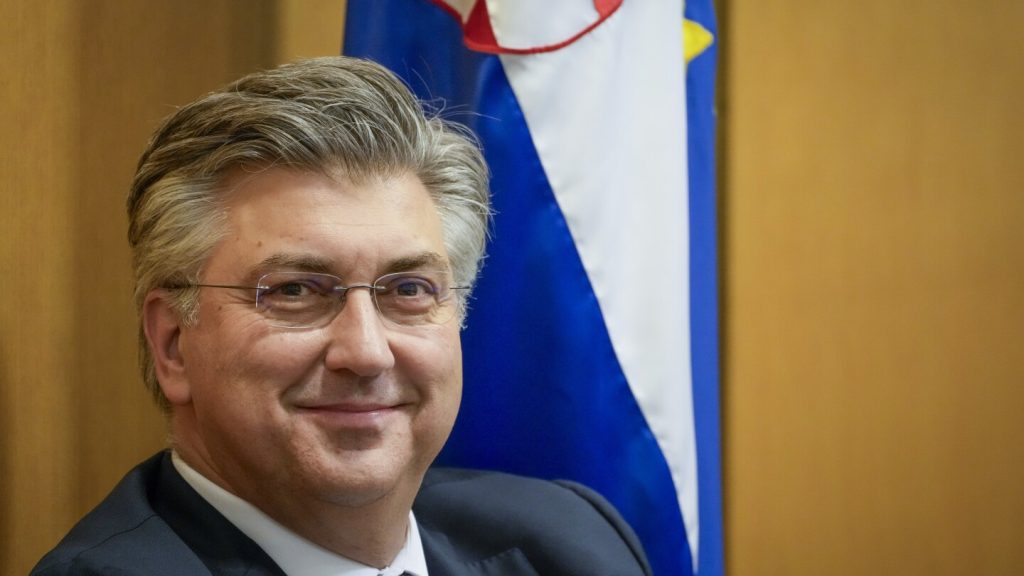Croatian lawmakers have voted in a new government, marking a shift to the right in the European Union ahead of the bloc’s parliamentary election next month. The government, led by the conservative Croatian Democratic Union (HDZ), now includes the hard-right Homeland Movement party, which emerged as a kingmaker after an inconclusive parliamentary election in April. Prime Minister Andrej Plenkovic, starting his third consecutive term, emphasized a focus on economic growth and modernization. Croatia, once one of the weakest economies in the EU, has made strides in joining the single currency market and relies heavily on tourism revenue.
Unlike previous governments, Croatia’s new government does not include a party representing the ethnic Serb minority, raising concerns about ethnic balance following the 1991-95 Serb-Croatian war. Plenkovic assured that the new government would prioritize the rights of national minorities and protect their achieved rights. However, there are reports of radicalization and divisions within Croatian society. The Homeland Movement party, composed of radical nationalists and social conservatives, has demanded the abolition of funding for a critical liberal news outlet, Novosti, which is supported by the Serb minority. Journalists at Novosti have received threats and labeled as enemies of the state, leading to calls for a response from authorities.
The HDZ has maintained control of the government since Croatia gained independence, with the Balkan nation becoming an EU member in 2013 and joining the eurozone last year. The rise of hard-right and populist parties in several EU governments suggests that they may make gains in the upcoming European Parliament election. The European continent currently faces challenges such as the war in Ukraine, climate emergencies, and migration, adding complexity to the political landscape. The new Croatian government’s inclusion of hard-right elements reflects a broader trend of right-wing populism in European politics, raising concerns about the future direction of the EU and its member states.
As Croatia navigates political shifts towards the right, concerns have been raised about the potential impact on ethnic minorities and democratic values. The exclusion of an ethnic Serb party from the government has sparked fears of further destabilization of Croatia’s fragile ethnic balance. The Homeland Movement party’s radical nationalism and conservative social views have also raised alarm among critics, who accuse the party of promoting division and intolerance. With the European Parliament election looming, the rise of hard-right parties across the EU presents challenges to the unity and stability of the bloc, especially in the face of ongoing crises and conflicts.
Despite the government’s assurances to protect the rights of national minorities, critics remain skeptical about the commitment to inclusive policies. The targeting of a liberal news outlet and the promotion of traditional gender roles by the Homeland Movement party have fueled concerns about freedom of the press and women’s rights in Croatian society. As the new government takes office, it faces a delicate balancing act between economic growth, political stability, and upholding democratic principles. The upcoming European Parliament election will be a litmus test for the influence of right-wing populism in shaping the future of the EU and its member states, including Croatia.


